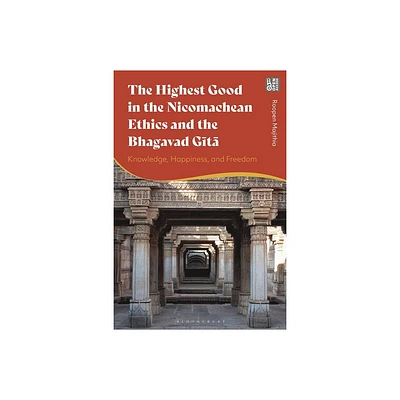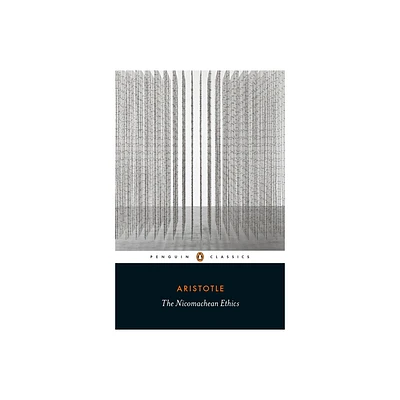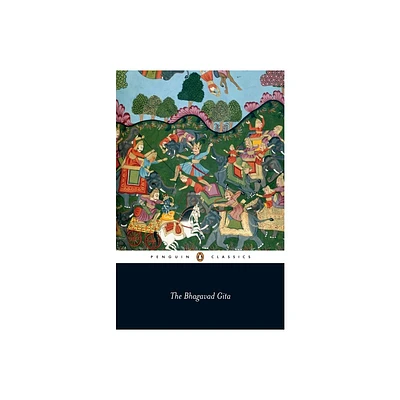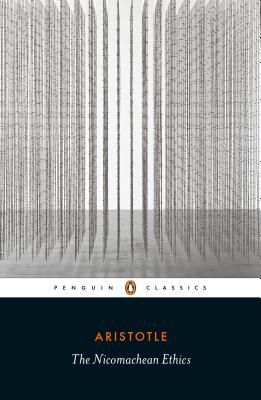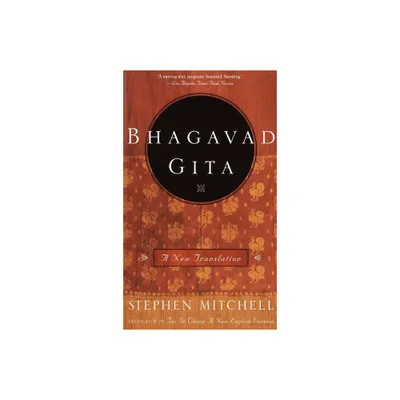Home
the Highest Good Nicomachean Ethics and Bhagavad Gita: Knowledge, Happiness, Freedom
Loading Inventory...
Barnes and Noble
the Highest Good Nicomachean Ethics and Bhagavad Gita: Knowledge, Happiness, Freedom
Current price: $115.00


Barnes and Noble
the Highest Good Nicomachean Ethics and Bhagavad Gita: Knowledge, Happiness, Freedom
Current price: $115.00
Loading Inventory...
Size: Hardcover
*Product Information may vary - to confirm product availability, pricing, and additional information please contact Barnes and Noble
This open access book presents a comparative study of two classics of world literature, offering the first sustained consideration of what unites and divides the Nicomachean Ethics and the Bhagavad Gita.
Focusing on the nature of ethical action and how it relates to the highest good, Roopen Majithia demonstrates how the Gita stresses the objectivity of knowledge and freedom from being a subject, while the Ethics emphasizes the knower, working out Aristotle's central commitment to the idea of substance as the primary building block of the world. Yet both the Gita and the Ethics explain variety in human behaviour in terms of three driving forces. Both agree moral agency is a construct that is a function of background, education, and habit, presupposing a cultural, political, and economic infrastructure, all of which shapes how each in turn conceives the highest good.
What distinguishes the texts is how the content of right action is generated. Reading them together, alert to their individual accounts of how the practical relates to the reflective dimensions of life, Majithia enriches our understanding of two cornerstone texts in the Greek and Indian philosophical traditions.
The ebook editions of this book are available open access under a CC BY-NC-ND 4.0
licence on bloomsburycollections.com. Open access was funded by The Marjorie Young Bell Faculty Fund, The Philosophy Department's Baxter Fund and The Hart Almerrin Massey Endowment.
Focusing on the nature of ethical action and how it relates to the highest good, Roopen Majithia demonstrates how the Gita stresses the objectivity of knowledge and freedom from being a subject, while the Ethics emphasizes the knower, working out Aristotle's central commitment to the idea of substance as the primary building block of the world. Yet both the Gita and the Ethics explain variety in human behaviour in terms of three driving forces. Both agree moral agency is a construct that is a function of background, education, and habit, presupposing a cultural, political, and economic infrastructure, all of which shapes how each in turn conceives the highest good.
What distinguishes the texts is how the content of right action is generated. Reading them together, alert to their individual accounts of how the practical relates to the reflective dimensions of life, Majithia enriches our understanding of two cornerstone texts in the Greek and Indian philosophical traditions.
The ebook editions of this book are available open access under a CC BY-NC-ND 4.0
licence on bloomsburycollections.com. Open access was funded by The Marjorie Young Bell Faculty Fund, The Philosophy Department's Baxter Fund and The Hart Almerrin Massey Endowment.
